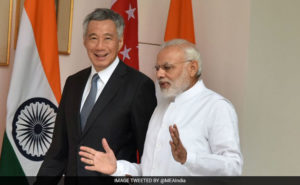 SEBI introduces uniform format of Listing Agreement for listed companies
SEBI introduces uniform format of Listing Agreement for listed companies
Markets regulator SEBI today issued uniform listing agreement format incorporating the revised disclosure and regulatory requirements applicable for all listed entities.
The new listing regulations allow listed companies to seek shareholders’ approval for related party deals through ordinary resolutions.
Besides, SEBI’s provisions for listed entities have been aligned with those of the Companies Act, 2013.
CIRCULAR Note: The Securities and Exchange Board of India has issued a circular no. CIR/CFD/CMD/6/2015 dated 13th October, 2015 to provide a uniform format of the listing agreement for the listed companies. A listing agreement is the agreement which is required to be executed with the stock exchange where the securities of the company are listed.
CIRCULAR
CIR/CFD/CMD/6/2015 October 13, 2015
To
All Listed Entities
All the Recognised Stock Exchanges
Dear Sir/Madam,
Sub: Format of uniform Listing Agreement
- The requirement of executing a listing agreement with the Stock Exchange is specified under different regulations related with initial issuance of capital, the details of which are as under:
Type of Securities, Regulation, Regulation No.
- Specified Securities (Equity & Convertible Securities on Main Board or SME or ITP) or Indian Depository Receipts, Securities and Exchange Board of India (Issue of Capital and Disclosure Requirements) Regulations, 2009 (“ICDR”), Regulation 109
- Non-Convertible Debt Securities Securities, and Exchange Board of India (Issue and Listing of Debt Securities) Regulations, 2008 (“ILDS”), Regulation 19A
- Non-Convertible Redeemable Preference Shares, Securities and Exchange Board of India(Issue and Listing of NonConvertible Redeemable Preference Shares) Regulations, 2013 (“NCRPS”), Regulation 16A
- Securitised Debt Instruments, Securities and Exchange Board of India (Public Offer and Listing of Securitised Debt Instruments) Regulations, 2008 (“SDI”), Regulation 35A
- Mutual Funds, Securities and Exchange Board of India (Mutual Funds) Regulations, 1996 (“MF”), Regulation 31B
- In order to give effect to the requirements of Regulations mentioned at para 1 above, a simplified listing agreement which is uniform across all types of securities/listed entities is being specified under Annexure I.
- A listed entity which has previously entered into agreement(s) with a recognised Stock Exchange(s) to list its securities shall execute a fresh listing agreement with such Stock Exchange within six months of the date of notification of Securities and Exchange Board of India (Listing Obligations and Disclosure Requirements) Regulations, 2015 (Listing Regulations) i.e. September 2, 2015.
Notwithstanding such novation, any action taken or purported to have been done or taken by the Stock Exchanges or SEBI, any enquiry or investigation commenced or showcause notice issued in respect of the existing listing agreement shall be deemed to have been done or taken under the corresponding provisions of the Listing Regulations in force.
- This circular is issued in exercise of the powers conferred under sections 11(1) and 11A of the Securities and Exchange Board of India Act 1992.
- This circular is available on SEBI website at www.sebi.gov.in under the categories “Legal Framework” and “Issues and listing”, “Mutual Funds”, “Corporate Debt Market” “Continuous Disclosure Requirements”.
Yours faithfully,
Harini Balaji
General Manager
+91-22-26449372
harinib@sebi.gov.in





